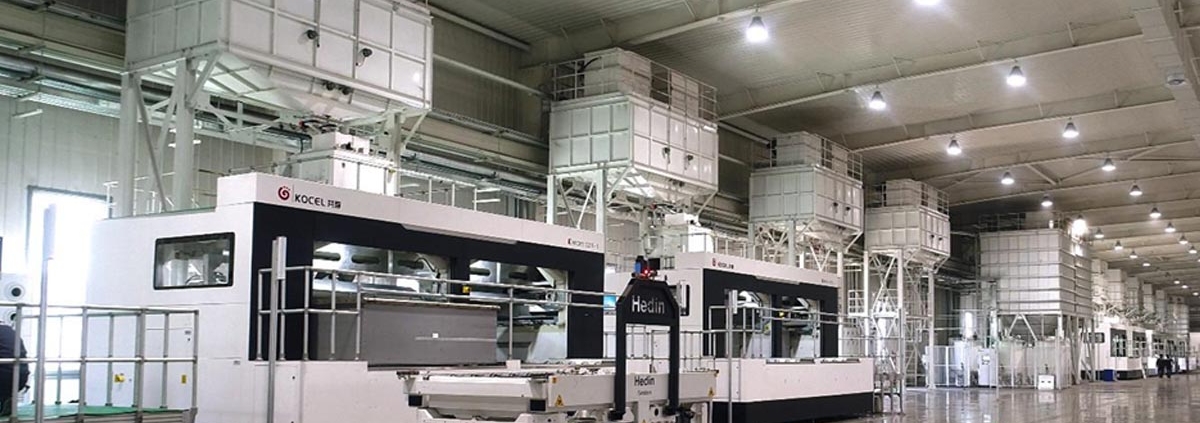The government held a symposium for private enterprises
The government held a symposium for private enterprises, with representatives from the Sharing Group and other companies participating in the production of a 10000 ton 3D printing intelligent factory for casting
On February 17, 2025, the government held a symposium for private enterprises, where many representatives of private enterprises gathered, including Huawei founder Ren Zhengfei, Alibaba founder Jack Ma, Xiaomi founder Lei Jun, as well as Peng Fan, chairman of Sharing Group Co., Ltd. and Sharing Intelligent Equipment Co., Ltd. This symposium provides an important communication platform for the development of private enterprises and is of great significance in promoting their sustainable and healthy development. CCTV conducted a key report.
It is reported that Share Group is a leading enterprise in China’s foundry industry, and its 3D printing technology and products have attracted much attention in recent years. The Sharing Group was founded in 1966 and has undergone multiple changes. Today, it has developed into a cross industry, cross regional, and diversified enterprise group. It is not only one of the leading industrial enterprises in Ningxia Hui Autonomous Region, but also outstanding in export earnings and taxes.
In the field of 3D printing, Shared Intelligent Equipment Co., Ltd., a subsidiary of Shared Group, has achieved remarkable results. The 3D printing full process intelligent factory for casting in Yinchuan is the world’s first 10000 ton level 3D printing intelligent factory for casting. Entering the factory, you can see 14 3D printers that are 5.2 meters high and weigh 35 tons neatly arranged in an air-conditioned workshop of about 4000 square meters. The floor is clean and tidy, with almost no dust, which is completely different from the traditional casting workshop environment. The factory controls the production process through an independently developed intelligent platform, achieving digital production. The overall equipment operation, including 3D printer execution, intelligent mobile cars, and stereoscopic warehouses, are all connected to intelligent units. The entire factory only has more than 30 workers, and the control room only requires 2 to 3 people per shift to control 14 3D printers, while traditional factories require at least 100 people to achieve the same production scale.
Shared Intelligent Equipment Co., Ltd. uses adhesive jet 3D printing technology. The principle is to “print” the cross-section of industrial components by spraying adhesive from the nozzle and stacking them layer by layer. It can be used for the production of products such as casting sand molds, metal parts green bodies, ceramic parts green bodies, etc. Among existing 3D printing technologies, this technology has the highest efficiency and lowest cost, making it more suitable for industrial applications in the manufacturing industry. Taking silica sand products as an example, after inputting the three-dimensional dimensional information of the product into the system, it can be formed into a whole shape through thousands of layers of powder spreading and adhesive spraying, without the need for molds or processing, and can achieve mass production effect. Moreover, a 3D printer can produce multiple different models of products.
At present, shared intelligent equipment has a leading sales share in the global adhesive jet 3D printer market. Its 3D printers are not only supplied to the domestic market, but also sold in large quantities overseas. Since 2018, more than 300 industrial grade casting sand 3D printers have been sold both domestically and internationally, and offices have been established in Austria and Japan. The super sand mold 3D printing equipment developed by it shortens the casting production cycle by 70%, controls the accuracy within plus or minus 0.5mm, and has a production efficiency three to five times that of similar scale equipment abroad, while the cost and price are only half of imported equipment.

This private enterprise symposium is a great encouragement for private enterprises such as the Sharing Group that are actively exploring in the field of technological innovation. In the future, the Sharing Group is expected to leverage policy support and its own technological advantages to continuously innovate in the field of 3D printing, promote industry development, and contribute greater strength to the transformation and upgrading of China’s manufacturing industry.
In 2024, China’s 3D printing output value will reach nearly 50 billion yuan
In December 2024, the Equipment Industry Department of the Ministry of Industry and Information Technology released a report titled “High Quality Development of the Equipment Industry Reaches a New Level”, which mentioned the progress made in the additive manufacturing industry in 2024 in the strategic emerging industries section. In addition, new energy vehicles, robots, industrial mother machines, rail transit, medical equipment, etc. have all reached new heights.
Promote the research and large-scale application of additive manufacturing equipment, systematically formulate and promote typical cases of process requirements, and carry out industry specific production and demand matching. Establish a sub standard committee for additive manufacturing processes and improve the standard testing system. It is expected to achieve a revenue of over 50 billion yuan in 2024, with a year-on-year growth of about 25%. From January to October, the export value was 7.89 billion yuan, maintaining a growth rate of over 50% for two consecutive years. 43 additive manufacturing medical devices have been registered with the National Medical Products Administration, and 120 have been registered as Class II products. Annual production of millions of additive manufacturing mobile phone hinges in the consumer electronics field.



